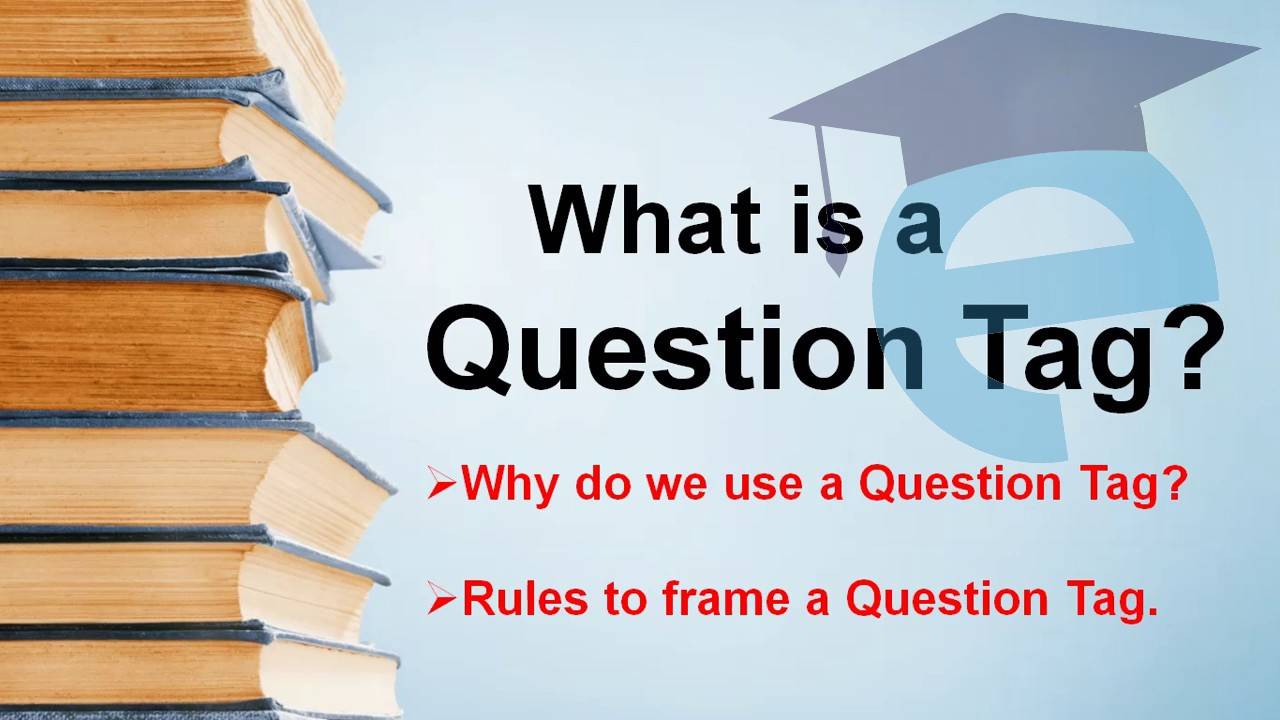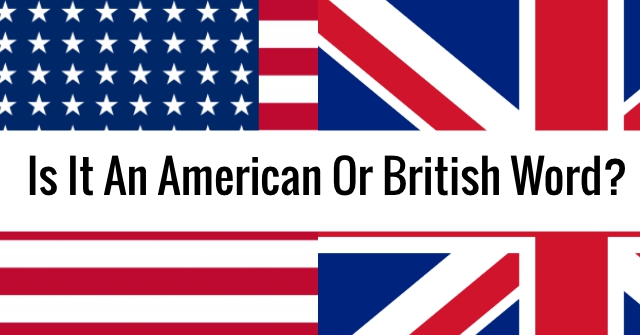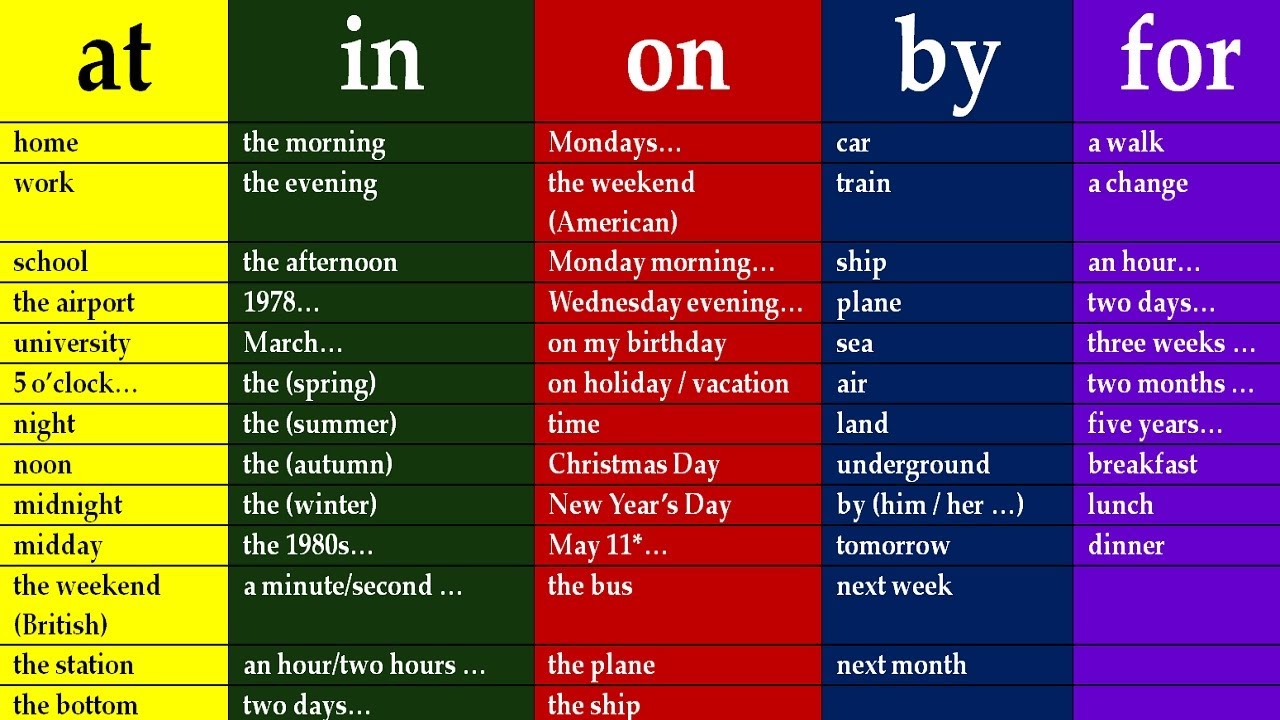Mistakes are often made by using the wrong preposition after certain words.
The following list includes the words which most often give trouble.
(প্রায়ই ভুলগুলো সৃষ্টি হয় সুনির্দিষ্ট কিছু word-এর পরে অযৌক্তিক preposition ব্যবহারের মাধ্যমে। এরকম সমস্যা করে, এমন কিছু word নিচে তালিকাটিতে অন্তর্ভুক্ত করা হল)
1) Absorbed (=গভীরভাবে নিবিষ্ট বা নিমগ্ন) in, at বসবে না।Don’t say : The man was absorbed at his work.Say : The man was absorbed in his work.Note : Absorbed -এর পরে appropriate preposition ‘in’ বসে। Absorbed -এর পর ‘at’ বসে না।
2) Accuse of (অভিযুক্ত করা/দোষী করা), for নয়।Don’t say : She accused the man for stealing.Say : She accused the man of stealing.Note : But charge, takes, with: as, The man was charged with murder. (লক্ষণীয় charge, with গ্রহণ করে, যেমন : The man was charged with murder.)
3) Accustomed to (অভ্যস্ত হওয়া), with বসবে না।Don’t say : I’m accustomed with hot weather.Say : I’m accustomed to hot weather.Note : Also used to, যেমনঃ He is used to the heat.
4) Afraid of (ভীত/শঙ্কিত), from বসবে না।Don’t say : Laura is afraid from the dog.Say : Laura is afraid of the dog.Note : Afraid হল- ভীত, এরপর সঠিক preposition-এর ব্যবহার হল- ‘of’, from বসানো সঠিক নয়।
5) Aim at (তাক করা), on বা against বসবে না।Don’t say : She aimed on the target.Say : She aimed at the target.Note : At, preposition-টি সর্বদা গতিপথ নির্দেশ করতে ব্যবহৃত হয়ঃ যেমন- throw at (ঝাঁপিয়ে পড়া), shout at (কারো প্রতি চিৎকার করে বলা), fire at (লক্ষ্য করে গুলি বর্ষণ করা), shoot at (তাক করে গুলি ছোঁড়া)। তবে Shoot (at ব্যতীত) আঘাত করে হত্যা করা অর্থ নির্দেশ করে। যেমন- He shoot a bird (= সে আঘাত করলো এবং এটা মরলো)।
6) Angry with (রাগান্বিত/ক্রুদ্ধ/রুষ্ট), against নয়।Don’t say : The teacher was angry against him.Say : The teacher was angry with him.Note-1 : আমরা ব্যক্তির সাথে with, কিন্তু বস্তুর প্রতি (at)ক্রুদ্ধ/রুষ্ট (angry)হই, যেমনঃ He was angry at The weather (with the weather নয়)।Note-2 : Also annoyed with, vexed with, ‘indignant with’ a person, but at a thing. (একইভাবে ব্যক্তির ‘সাথে’ বোঝাতে Annoyed (ক্রুদ্ধ) with, vexed (বিরক্ত) with, indignant (ঘৃণা/ক্রোধ) with। লক্ষণীয়, বস্তুর ‘প্রতি’ বোঝাতে উক্ত word- গুলোর পরে with-এর পরিবর্তে at বসে।
7) Anxious (= troubled উদ্বিগ্ন/উৎকণ্ঠিত) about, for নয়।Don’t say : They’re anxious for his health.Say : They’re anxious about his health.Note : But anxious meaning wishing very much takes for, as: Parents are anxious for their children’s success. (তবে Anxious যখন তীব্রভাবে চাচ্ছে এমন বা প্রত্যাশী অর্থে ব্যবহৃত হয়, তখন about-এর পরিবর্তে for বসে। যেমনঃ Parents are anxious for their children’s success.)
8) Arrive(পৌঁছানো) at, to নয়।Don’t say : We arrived to the village at night.Say : We arrived at the village at night.Note : Use arrive in with countries and large cities, as : Mr Smith has arrived in London (arrive in দেশ এবং বড় শহর বোঝাতে ব্যবহৃত হয়। যেমনঃ Mr. Smith arrived in London or New York, India etc.
9) Ashamed (লজ্জিত) of,form নয়।Don’t say : He’s now ashamed from his conduct.Say : He’s now ashamed of his conduct.Note : Shy লাজুক/সাবধানী/দ্বিধান্বিত অর্থে ashamed of ব্যবহার করা যথার্থ নয়, সুতরাং I am ashamed of my teacher-এর পরিবর্তে আপনার বলা উচিত I’m shy of my teacher.
10) Believe (আস্থা/বিশ্বাস থাকা) in, to নয়।Don’t say : We believe to God.Say : We believe in God.Note : To believe in means to have faith in To believe (without the in) means to regard something as true : I believe everythin he says. (To believe in অর্থ হল আস্থা/বিশ্বাস থাকা, পক্ষান্তরে To believe (in ব্যতীত) অর্থ হল- সত্য হিসেবে বিবেচনা করা (বিশ্বাস করা) যেমনঃ I believe everything he says)
11) Boast of or about (অহংকার করা) , for নয়।Don’t say : James boasted for his strength.Say : James boasted of (or about) his strength.
12) Careful of, with or about (যত্নবান/মনযোগী), for নয়।Don’t say : Elke’s very careful for her health.Say : Elke’s very careful of/about her health.Or : You should be more careful with your money.Note : Take care of (ব্যবস্থা করা/ভার নেওয়া)। যেমনঃ He takes care of his money.
13) Travel by train ইত্যাদি, with the train ইত্যাদি নয়। Don’t say : He travelled with the train yesterday.Say: He travelled by train yesterday.Note : আমরা বলি, by train, by tram, by boat, by aeroplane, আবার by land, by sea, by air, by bus, in a bus, on a bus; by motor car বা in a motor car, by taxi বা in a taxi; in a cab, in a carriage; on horse-back, on a donkey, on a bicycle; on foot.
14) Complain about (অসন্তোষ,অন্যায়,দুর্ভোগ,যন্ত্রণা) for নয়।Don’t say : Annette complained for the weather.Say : Annette complained about the weather.Note : আমরা যখন অসুস্থতার কথা বলি তখন complain of ব্যবহার করি। আমরা বলিঃ She complained of a sore throat.
15) Composed of (স্থির/স্থিরীকৃত), from নয়।Don’t say : Our class is composed from thirty students.Say : Our class is composed of thirty students.
16) Confidence in (আত্মবিশ্বাস/আস্থা), to নয়।Don’t say : I have great confidence to you.Say : I have great confidence in you.Note : In confidence এটিওঃ যেমন- Let me tell you something in confidence (as a secret=গোপনে)।
17) Conform to (অনুরূপ/একমত হওয়া), with নয়।Don’t say : We must conform with the rules.Say : We must conform to the rules.Note : তবে, comply (রাজি হওয়া/সম্মত হওয়া/মত দেয়া)-এরপর with বসে। যেমনঃ We’ll comply with your request.
18) Congratulate on (অভিনন্দন জানানো), for নয়।Don’t say : I congratulate you for your success.Say : I congratulate you on your success.
19) Consist of (গঠিত হওয়া), from নয়।Don’t say : A year consists from twelve months.Say : A year consists of twelve months.Note : অধিক সতর্কতা অবলম্বন করতে হবে, passive voice এ consist ব্যবহারে।
20) Covered with (ছেয়ে যাওয়া,আচ্ছাদিত হওয়া), by নয়।Don’t say : The mountains are covered by snow.Say : The mountains are covered with/in snow.
21) Cure of (আরোগ্য/চিকিৎসা/মুক্ত করা), from নয়।Don’t say : The man was cured from his illness.Say : The man was cured of his illness.Not e : কিন্তু cure যখন Noun হিসেবে বসে সে ক্ষেত্রে for (জন্য) কে গ্রহণ করে। যেমনঃ There is no cure for that disease, অন্যদিকে cure এরপরে preposition from বসেনা।
22) Depend on or upon (নির্ভর/অবলম্বন করা, নির্ভরশীল/মুখাপেক্ষী হওয়া), from নয়। Don’t say: It depends from her. Say: It depends on (or upon) her. Note: Rely (নির্ভর/ভরসা করা)-এর পরেও on বা upon বসে। যেমনঃ I can’t rely on (or upon) him.
23) Deprive of (বঞ্চিত/বিরহিত করা), from নয়। Don’t say: Nelson Mandela was deprived from his freedom. Say: Nelson Mandela was deprived of his freedom.
24) Die of an illness (রোগ/অসুস্থতার জন্য মারা যাওয়া), from an illness নয়। Don’t say: Many people have died from malaria. Say: Many people have died of malaria. Note : কেউ যখন রোগ/অসুস্থতা, অনাহার/ক্ষুধা, পিপাসা, দুঃখ ইত্যাদি হতে মারা যাওয়া বোঝাতে die-এর পরে of বসে। অত্যধিক খাটুনি (overwork) হতে মারা যাওয়া বোঝাতে from বসে। সহিংসতা (violence),তরবারি (sword), মহামারী (pestilence) ইত্যাদি হতে মারা যাওয়া বোঝাতে by বসে। যুদ্ধে, অভাবে মারা যাওয়া বোঝাতে in বসে। দেশের জন্য আত্মদান বোঝাতে for বসে। কোন কারণে মারা যাওয়া বোঝাতে for, অবহেলার কারণে মারা যাওয়া বোঝাতে through, নাট্যমঞ্চে মারা যাওয়া বোঝাতে to বসে এবং ঝুঁকির মধ্যে মারা যাওয়া বোঝাতে at বসে।
25) Different from (ভিন্নরকম/পৃথক), than নয়। Don’t say: My book is different than yours. Say: My book is different from yours.
26) Disappointed by, about বা at, from নয়।
(a) by/at/about: Don’t say: Phillipa was disappointed from the low mark she got in the test. Say: Phillipa was disappointed by/about/at the low mark she got in the test.
(b) with/in: Don’t say: Jane was disappointed from her son. Say: Jane was disappointed with/in her son. Note : আমরা ব্যক্তির পূর্বে with অথবা in,বস্তুর পূর্বে at, about অথবা by এবং gerund এর পূর্বে at ব্যবহার করি, যেমন: Keith is very disappointed at not winning the prize. We use that (optional before a new clause): I was disappointed (that) I didn’t get an invitation.
27) Divide into parts (অংশে/ভাগে ভাগ করা), in parts নয়।Don’t say: I divided the cake in four parts. Say: I divided the cake into four parts. Note : তবে কোন বস্তুকে অর্ধেক (in half) বা দুইয়ে( in two) ভাগ করা যেতে পারে। যেমনঃ Paul divided the apple in half (or in two).
28) No doubt (n) (সংশয়/সন্দেহ) of বা about, for নয়। Don’t say: I’ve no doubt for his ability. Say: I’ve no doubt of (or about) his ability. Note : Doubtful (সন্দিগ্ন/সন্দেহপ্রবণ)-এর পরেও of বসে। যেমন: I am doubtful of his ability to pass.
29) Dressed in (পরিহিত), with নয়। Don’t say: The woman was dressed with black. Say:The woman was dressed in black.Note : The woman was in black এটিও সঠিক।
30) Exception to (বহির্ভূত), of নয়। Don’t say: This is an exception of the rule. Say: This is an exception to the rule. Note: আমরা বলি, with the exception of (ব্যতীত), যেমন: She liked all her subjects with the exception of physics.
31) Exchange for (বদলি/বিনিময় করা), by নয়। Don’t say: He exchanged his collection of matchboxes by some foreign stamps. Say: He exchanged his collection of matchboxes for some foreign stamps. Note : In exchange (বদলে/বিনিময়ে)-এর পরেও for বসে, যেমনঃ He gave them his old car in exchange for a new one.
32) Fail in (ব্যর্থ/অকৃতকার্য হওয়া), from নয়। Don’t say: Steven failed from maths last year. Say: Steven failed in maths last year.
33) Full of (পূর্ণ/ভরা/টইটুম্বুর), with বা from নয়। Don’t say: The jar was full with (or from) oil. Say: The jar was full of oil. Note : তবে Fill-এর পরে with বসে, যেমনঃ Jane filled the glass with water।
34) Get rid of (নিষ্কৃতি/অব্যহতি পাওয়া), from নয়। Don’t say: I’ll be glad to get rid from him. Say: I’ll be glad to get rid of him.
35) Glad (খুশি/আনন্দিত) of বা about, from বা with নয়। Don’t say: Francis was glad from (or with) receiving your letter. Say: Francis was glad of (or about) receiving your letter.Note : ফলাফল (result)-এ খুশি বোঝাতে glad at ব্যবহৃত হয়। যেমনঃ He is glad at having received a good mark.
36) Good at (ভাল/দক্ষ/যোগ্য), in নয়। Don’t say: My sister’s good in maths. Say: My sister’s good at maths.Note 1 : Bad (খারাপ/মন্দ), clever (চালাক/দক্ষ), quick (প্রাণবন্ত/চটপটে), slow (ধীর/মন্থর) ইত্যাদির পরেও at বসে। তবে weak (দুর্বল)-এর পরে in বসে। যেমনঃ He’s weak in grammar.
Note 2 : He’s good in class অর্থ- ক্লাসে তার আচরণ ভাল।
37) Guard against (সতর্ক থাকা/সাবধান হওয়া), from নয়। Don’t say: You must guard from bad habits. Say: You must guard against bad habits.
38) Guilty of (অপরাধী/দোষী), for নয়। Don’t say: He was found guilty for murder. Say: He was found guilty of murder.
39) Independent of (স্বাধীন/স্বাবলম্বী), from নয়। Don’t say: Clare’s independent from her parents. Say: Clare’s independent of her parents. Note: আমরা বলি, dependent (নির্ভরশীল/অধীন) on, যেমন: A child is dependent on its parents.
40) Indifferent to (নিরুৎসুক/উদাসীন/উন্নাসিক/অমনোযোগী), for নয়। Don’t say: They’re indifferent for politics. Say: They’re indifferent to politics.
41) Insist on (তাগিদ দেওয়া/সনির্বদ্ধ বলা/জোর দেওয়া), to নয়। Don’t say: He always insisted to his opinion. Say: He always insisted on his opinion. Note: লক্ষণীয় persist (জেদ করা/নাছোড়বান্দার মত অটল থাকা)-এর পরে to বসে। যেমনঃ He persisted in his silly ideas.
42) Interested in (আগ্রহী/সাগ্রহ/কৌতূহলী/উৎসাহী), for নয়। Don’t say: She’s not interested for her work. Say: She’s not interested in her work. Note: Take an interest (আগ্রহান্বিত হওয়া/আগ্রহ প্রকাশ করা)-এর পরে in বসে। যেমনঃ She takes a great interest in music.
43) Jealous of (পরশ্রীকাতর/ঈর্ষানিত হওয়া), from নয়। Don’t say: He’s very jealous from his brother. Say: He’s very jealous of his brother.
44) Look at (দেখা/তাকানো/দৃষ্টি ফেরানো), to নয়।Don’t say : Look to this beautiful picture.Say : Look at this beautiful picure.Note : সর্বদা gaze (স্থির দৃষ্টিতে তাকিয়ে থাকা), stare (স্থির দৃষ্টিতে তাকানো) ইত্যাদির পরেও at বসে। তবে look after (= take care of যত্ন নেওা/দেখা-শোনা করা); look for (= try to find – অনুসন্ধান করা) look over (= examine – পরিদর্শন/ পরীক্ষা করা); look into (= examine closely – গভীরভাবে পরীক্ষা করা/তদন্ত করা); look upon (= conside – বিশেষ দৃষ্টিকোণ থেকে দেখা); look down upon (= have a low opinion of – উপেক্ষা করা/অন্যদের ছোট ভাবা), look upto (= respect- শ্রদ্ধা করা); look out for (= expect – আশা/সম্ভাবনা); look forward to (= expect with pleasure- আনন্দের সাথে প্রতীক্ষা/আশা করা); look to (= rely on- কোন ব্যাপারে সাবধান হওয়া) ইত্যাদির ব্যবহার রীতিসিদ্ধ।
45) Leave for a place (কোন স্থানের উদ্দ্যেশে যাত্রা করা), to a place নয়।Don’t say:They’re leaving to England soon. Say: They’re leaving for England soon.
46) Live on (বেঁচে থাকা), from নয়। Don’t say: He lives from his brother’s money. Say: He lives on his brother’s money. Note : Feed on (খেয়ে বেঁচে থাকা)-এর পরেও on বসে। যেমনঃ Some birds feed on insects.
47) Married to (বিবাহিত), with নয়। Don’t say: Angela was married with a rich man.Say: Angela was married to a rich man.Note: সর্বদা engaged (বাগদান করা)-এর পরেও to বসে। যেমনঃ Sally was engaged to Peter for a year before they got married.48) Opposite to (সম্মুখবর্তী/মুখোমুখি/উল্টো দিকে/বিপরীতে), from নয়। Don’t say: Their house is opposite from ours.Say: Their house is opposite to ours. Note: Opposite ours-ও শুদ্ধ।
49) Pass by a place (কোন স্থানকে অতিক্রম করা/পেছনে ফেলা), from a place নয়। Don’t say: Will you pass from the post-office? Say: Will you pass by the post-office? Note: সর্বদা pass the post-office শুদ্ধ।
50) Play for a team (কোন দলে/দলের হয়ে খেলা), with a team নয়।Don’t say: He plays regularly with that team.Say: He plays regularly for that team.
51) Pleased with (সন্তুষ্ট/খুশি/আনন্দিত), from নয়।Don’t say:The teacher is pleased from me. Say: The teacher is pleased with me. Note: আমরা বলতে পারি pleased at বা pleased with যদি, পরে একটি abstract noun বা clause বসে, যেমন : They were pleased at (or with) what he said; They were pleased at (or with) her results.
52) Popular with (জনপ্রিয়/লোকপ্রিয়), among নয়। Don’t say: John’s popular among his friends.Say: John’s popular with his friends.
53) Prefer to (শ্রেয় মনে করা/পছন্দ করা), from নয়।Don’t say: I prefer a blue pen from a red one. Say: I prefer a blue pen to a red one. Note: সর্বদা preferable to (অধিকমাত্রায় প্রিয়), যেমনঃ This car is preferable to my old one.
54) Preside at বা over (সভাপতিত্ব করা/প্রধান হওয়া), in নয়। Don’t say: Who presided in the last meeting?Say: Who presided at (or over) the last meeting?
55) Proud of (গর্বিত/মর্যাদাবান হওয়া), for নয়। Don’t say: He’s very proud for his promotion.Say: He’s very proud of his promotion. Note: আবার আমরা বলতে পারি take (a) pride in, যেমনঃ A craftsman takes a pride in his work.
56) Rejoice at বা in (আহ্লাদিত/উল্লসিত হওয়া), for নয়। Don’t say: We rejoiced for her success. Say: We rejoiced at (or in) her success.
57) Related to (আত্মীয়তা সূত্রে সম্পর্কিত/জড়িত/সংশ্লিষ্ট হওয়া), with নয়।Don’t say: Are you related with Simon in any way? Say: Are you related to Simon in any way? Note: সর্বদাই relation (সম্পর্ক) এরপরে to বসে, যেমমঃ Is he any relation to you?
58) Repent of (অনুশোচনা করা/হওয়া), from নয়। Don’t say: He repented from his crime.Say: He repented of his crime. Note: লক্ষণীয় repentance (অনুশোচনা/অনুতাপ)-এর পরে for বসে। যেমনঃ He feels repentance for his sin.
59) Satisfied with (পরিতৃপ্ত/সন্তুষ্ট), from নয়।Don’t say: Are you satisfied from your marks?Say: Are you satisfied with your marks?Note: সর্বদা content (খুশি হওয়া), delighted (আনন্দিত হওয়া), unhappy, happy, displeased (অসন্তুষ্ট হওয়া), dissatisfied (অসন্তুষ্ট হওয়া), disgusted (বিরক্ত হওয়া) এদের পরে preposition with বসে।
60) Similar to (সদৃশ/অনুরূপ/সমমনা), with নয়। Don’t say: Your house is similar with mine.Say: Your house is similar to mine.
61) Sit at a desk (ডেস্কে বসা) ইত্যাদি, on a desk নয়।Don’t say: The bank manager was sitting on his desk.Say: The bank manager was sitting at his desk. Note: সর্বদাই sit at a table (টেবিলে বসা) এক্ষেত্রে at হবে। কিন্তু chair, bench, sofa ইত্যাদির ক্ষেত্রে on হবে। যেমনঃ on a chair/bench/sofa; আবার in an arm-chair, in a tree বা up a tree, যেমনঃ A bird sometimes perches (= sits) on a tree.
62) Spend on (অতিবাহিত/ব্যয় করা), for নয়। Don’t say: I spend a lot of time for my computer. Say: I spend a lot of time on my computer.
63) Succeed in (কৃতকার্য/সফল হওয়া), at নয়। Don’t say: I hope he’ll succeed at his work.Say: I hope he’ll succeed in his work. Note: লক্ষণীয়, একজন ব্যক্তি সম্পত্তি, পদবী, কার্যালয় (অফিস) ইত্যাদির উত্তরাধিকারী (মালিক) succeeds to হয়। যেমন: Queen Elizabeth II succeeded to the throne in 1952.
64) Superior to (শ্রেষ্ঠ/উপরস্থ), from বা than নয়।Don’t say: This is superior from (or than) that.Say: This is superior to that. Note: inferior (নিকৃষ্ট/অধস্তন), junior (বয়ঃকনিষ্ঠ/অধস্তন), senior (বয়োজ্যেষ্ঠ/উপরস্থ), subsequent, prior (পূর্ববর্তী) ইত্যাদির পরেও to বসে।
65) Sure of (নিশ্চিত/নিঃসংশয় হওয়া), for নয়। Don’t say: I’m quite sure for her honesty. Say: I’m quite sure of her honesty. Note: সর্বদা certain (নিশ্চিত)-এর পরেও of বসে। যেমনঃ I am quite certain of it.
66) Surprised at or by (হতবাক/বিস্মিত), for নয়।Don’t say: Harold was surprised for the loud bang.Say: Harold was surprised at/by the loud bang. Note: সর্বদা astonished (বিস্মিত করা), amazed (বিস্মিত করা), alarmed (উদ্বিগ্ন), puzzled (কিংকর্তব্যবিমূঢ় করা), shocked (মর্মাহত) ইত্যাদির পরেও at/by বসে।
67) Suspect of (সন্দেহ করা), for নয়। Don’t say: I suspect Kate for stealing the pen.Say: I suspect Kate of stealing the pen. Note: সর্বদা suspicious (সন্দেহপ্রবণ)-এর পরে of বসে। যেমন: Dogs are suspicious of strangers.
68) Take by (চেপে ধরা) from নয়। Don’t say: Robert took his brother from the hand.Say: Robert took his brother by the hand. Note: সর্বদা hold (চেপে ধরা), catch (ধরা), seize (ধরা/পাকড়ানো), snatch (তাড়াতাড়ি ধরা), grasp (আঁকড়িয়ে ধরা)ইত্যাদির পরেও by বসে।
69) Tie to (বাঁধা), on নয়। Don’t say: The girl tied the string on the kite.Say: The girl tied the string to the kite. Note: সর্বদাই bind (বাধা/বন্ধন করা/বাঁধানো)-এর পরেও to বসে। যেমন: The prisoner was bound to the stake.
70) Tired of (ত্যক্ত/বিরক্ত হওয়া), from নয়। Don’t say: The boys are tired from eating boiled eggs. Say: The boys are tired of eating boiled eggs. Note : Tired with (ক্লান্ত/বিরক্ত, উদ্যোমহীন/অবসন্ন), যেমনঃ I am tired with walking. I want to rest. Tired of এবং tired with উল্লেখ্য যে, weary (ক্লান্ত) of এবং weary with এরাও।
72) Tremble with cold (ঠাণ্ডায় কেঁপে ওঠা), from cold ইত্যাদি নয়।Don’t say: The man was trembling from cold.Say: The man was trembling with cold.Note: সর্বদা shake (ঝাঁকা দেওা/বিচলিত করা/কাঁপা) এবং shiver (কাঁপা)-এর পরেও with বসে।যেমনঃ The thief was shaking with fear.
73) Warn (a person) of danger বিপদ সম্পর্কে (কোন ব্যক্তিকে) সতর্ক করে দেওয়া, about danger নয়। Don’t say: They were warned about the danger.Say: They were warned of the danger.Note: সর্বদাই কোন ব্যক্তিকে দোষ/ত্রুটি সম্পর্কে সতর্ক করে দিতে, warned against ব্যবহার হয়। যেমনঃ His teacher warned him against disobeying the regulations.
74) Write in ink (কালিতে লেখা), with ink নয়। Don’t say: I’ve written the letter with ink.Say: I’ve written the letter in ink. Note: আপনি in ব্যবহার করবেন যখন আপনি কাজ শেষ করে ফেরত আসবেন। The drawing was done in charcoal. Dora writes her letters in green ink. আপনি যখন কোন instrument নির্দেশ করবেন তখন ব্যবহার করবেন with. The children art learning to write with a pen. Helen prefers to paint with a thin brush.
This article is useful yes or no commence.
more >>
প্রয়োজনীয় মূর্হুতে
খুঁজে পেতে 🖧শেয়ার করে রাখুন..
give and take (verb) ➯ লেন – দেন
give or take (adverb) ➯ দাও অথবা নাও
give-and-take (noun) ➯ রফা/ মিটমাট
take a breath (verb) ➯ শ্বাস নাও
take a breather (verb) ➯ একটি সাময়িক বিশ্রাম নিতে
take a chance (verb) ➯ ভাগ্যপরীক্ষা করা/ ঝুঁকি নেত্তয়া
jet-assisted take-off (noun) ➯ জেট সহায়তায় গ্রহণ বন্ধ
out-take (noun) ➯ অপ্রচলিত নিতে
piss-take (noun) ➯ প্রস্রাব-নিতে
stock-take (verb) ➯ স্টক-নিতে
take a bow (verb) ➯ একটি ধনুক নাও
take a chill pill (verb) ➯ একটি শৈত্য বড়ি গ্রহণ
take a crap (verb) ➯ একটি বিষ্ঠা নিতে
take a dare (verb) ➯ সাহস একটি নিতে
double take (noun) ➯ দিগুন গ্রহণ
take a dive (verb) ➯ একটি ডুব নিতে
take a firm stand (verb) ➯ একটি দৃঢ় স্ট্যান্ড নিতে
take a hike ➯ একটি ভ্রমণ নিতে
take a hit (verb) ➯ আঘাত হানো
take a hop (verb) ➯ একটি হপ নিতে
take a joke (verb) ➯ একটি তামাশা নিতে
take a leak (verb) ➯ একটি লিক নিতে
take a look (verb) ➯ কটাক্ষপাত করা
take a powder (verb) ➯ একটি গুঁড়া নিতে
take a shit (verb) ➯ একটি বিষ্ঠা নিতে
take aback (verb) ➯ হতচকিত করা
take account (verb) ➯ হিসাব করা
take advantage (verb) ➯ সুবিধা গ্রহণ
take aim (verb) ➯ লক্ষ্য করা/ তাগ করা
take arms (verb) ➯ অস্ত্র সাথে নেয়
take away (verb) ➯ সরাইয়া লইয়া যাত্তয়া/ ছাড়াইয়া লত্তয়া
take care (verb) ➯ যত্নশীল হত্তয়া/ তত্ত্বাবধান করা
take chances (verb) ➯ ঝঁকি নেওয়া
take charge (verb) ➯ ভার গ্রহণ
take control (verb) ➯ দখল করা
take cover (verb) ➯ কভার নিতে
take effect (verb) ➯ ফলপ্রদ হত্তয়া
take exception (verb) ➯ আপত্তি করা
take fire (verb) ➯ আঁচ ত্তঠা
take five (verb) ➯ পাঁচটি নাও
take flight (verb) ➯ ছুটিয়া পলাইয়া যাইবার চেষ্টা করা
take for granted (verb) ➯ ধরিয়া লওয়া
take form (verb) ➯ ফর্ম নিতে
take heart (verb) ➯ দৃঢ় আস্থা রাখা/ মনে জোর করা
take heed (verb) ➯ সতর্ক হওয়া
take hold (verb) ➯ ধরে নিতে
take hold of (verb) ➯ ধরে
take home (verb) ➯ বাড়িতে নিয়ে
take in charge (verb) ➯ চার্জ গ্রহণ
take in vain (verb) ➯ নিরর্থক নিতে
take in water (verb) ➯ পানি গ্রহণ
take into account (verb) ➯ বিবেচনার বিষয়ীভূত করা/ গ্রাহ্য করা
take issue (verb) ➯ সমস্যা নিতে
take it easy (verb) ➯ এটা হাল্কা ভাবে নিন
take it on the chin (verb) ➯ চিবুক থেকে তা গ্রহণ
take kindly to (verb) ➯ কল্যাণকামী গ্রহণ
take leave (verb) ➯ বিদায়গ্রহণ করা/ অনুমতি লত্তয়া
take lying down (verb) ➯ শায়িত নিতে
take note (verb) ➯ নোট নাও
take notice (verb) ➯ লক্ষ্য করা
take office (verb) ➯ অফিস নিতে
take one’s lumps (verb) ➯ এক এর ফোলা বা ডেলা বাধঁা নিতে
take orders (verb) ➯ অর্ডার নিতে
take pains (verb) ➯ যত্নপূর্বক এবং শ্রমসহকারে কোন কাজ করা
take part (verb) ➯ অংশগ্রহণ করা/ অংশী হত্তয়া
take place (verb) ➯ সঙ্ঘটিত হত্তয়া / আসা
take pride (verb) ➯ গর্ব করা
take refuge (verb) ➯ আশ্রয় নিতে
take root (verb) ➯ বদ্ধমূল হওয়া
take shape (verb) ➯ গঠিত হত্তয়া
take sides (verb) ➯ পক্ষই নিতে
take stage (verb) ➯ পর্যায়ে নিতে
take stock (verb) ➯ মজুত মালের তালিকা করা/ মূল্যগণনা করা
take ten (verb) ➯ দশ নিতে
take the Fifth (verb) ➯ পঞ্চম নিতে
take the Fifth Amendment (verb) ➯ পঞ্চম সংশোধনী নিতে
take the air (verb) ➯ বায়ুসেবন করা
take the bull by the horns (verb) ➯ হর্ণ দ্বারা ষাঁড় নিতে
take the cake (verb) ➯ বোকামি, পাকামি, ধৃষ্টতা ইত্যাদিতে সবকিছুকে ছাড়িয়ে যাওয়া
take the count (verb) ➯ গণনা নিতে
take the field (verb) ➯ আসরে নামা
take the floor (verb) ➯ মেঝে নিতে
take the piss (verb) ➯ প্রস্রাব নিতে
take the road (verb) ➯ যাত্রা করা
take the stage (verb) ➯ পর্যায়ে নিতে
take the stand (verb) ➯ স্ট্যান্ড নিতে
take the veil (verb) ➯ মঠবাসিনী সন্ন্যাসিনী হত্তয়া
take time by the forelock (verb) ➯ অলক দ্বারা সময় লাগবে
take time off (verb) ➯ সময় বন্ধ করা
take to be (verb) ➯ হতে সময় লাগবে
take to heart (verb) ➯ ব্যথিতচিত্ত হওয়া
take to task (verb) ➯ কৈফিয়ত তলব করা/ তিরস্কার করা
take to the woods (verb) ➯ মানুষকে নিতে
take turns (verb) ➯ পালাক্রমে বদলী করা
take up arms (verb) ➯ সংগ্রাম করা
take water (verb) ➯ জল লত্তয়া
take-away (adjective) ➯ ছাড়াইয়া লত্তয়া
take-home (adjective) ➯ বাড়িতে নিয়ে
take-home pay (noun) ➯ হোম বেতন নিতে
take-in (noun) ➯ প্রতারণা/ আশাভঙ্গ
take-off (noun) ➯ হাস্যকর অনুকরণ/ অসুবিধা
take-up (noun) ➯ নিতে আপ
take after (phrasal verb) ➯ সদৃশ হত্তয়া/ অনুযায়ী হত্তয়া
take against (phrasal verb) ➯ বিরুদ্ধে নিতে
take apart (phrasal verb) ➯ বিভিন্ন অংশ খুলিয়া ফেলা/ নিন্দা করা
take aside (phrasal verb) ➯ সরান
take away from (phrasal verb) ➯ দূরে থেকে নিতে
take back (phrasal verb) ➯ ফিরাইয়া লত্তয়া/ প্রত্যাহার করা
take down (phrasal verb) ➯ ত্তলান/ নিচু করা
take for (phrasal verb) ➯ মনে করা
take in (phrasal verb) ➯ গ্রহণ করা/ পরিবেষ্টিত করা
take off (phrasal verb) ➯ অপসৃত করা/ খুলিয়া ফেলা
take on (phrasal verb) ➯ দায়িত্বগ্রহণ করা/ ধারণ করা
take out (phrasal verb) ➯ ভিতর হইতে অপসৃত করা/ নিষ্কাশিত করা
take over (phrasal verb) ➯ বদলির ফলে গ্রহণ করা/ অপর পারে লইয়া যাত্তয়া
take through (phrasal verb) ➯ মধ্য দিয়ে
take to (phrasal verb) ➯ অবলম্বন করা/ কিছুর প্রতি আসক্ত করা
take up (phrasal verb) ➯ উত্তোলন করা/ উঁচু করা
take up on (phrasal verb) ➯ উপর পর্যন্ত সময় লাগতে
take up with (phrasal verb) ➯ সঙ্গে লাগতে
take upon (phrasal verb) ➯ উপর নিতে
ইন্টারনেট হতে সংগৃহীত










